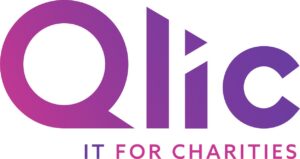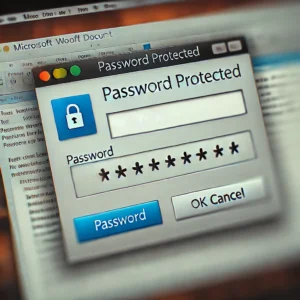Data is the lifeblood of any organisation, and securing it is paramount. Charities safeguarding crucial data can mean the difference between fulfilling their mission and falling short. As charity leaders and IT professionals, it is critically important to understand data backup and recovery options within widely used platforms like Microsoft Office 365.
This blog aims to demystify the often forgotten aspect of Microsoft 365 backup and recovery. We will explore Microsoft’s approach to safeguarding crucial data, focusing specifically on their backup practices. By the end of this read, you will have a clearer understanding of how Microsoft backs up Office 365 data, and why all charities should have a data backup and restore process in place.

The Need for Office 365 Backup in Charities
Data forms the backbone of any charitable organisation. It is the key to understanding donor behaviour, measuring impact, making informed decisions and driving the mission forward. However, the value of data also makes it a target for cyber criminals.
A security threat such as data loss can lead to a range of problems for charities, from the immediate financial impact of recovering lost data to the long-term damage of reputation loss. A single data breach can erode donors’ trust, potentially leading them to take their donations elsewhere.
One common misconception that heightens these risks is the belief that Microsoft automatically backs up all data in Office 365. Microsoft does provide a level of data redundancy – where data storage occurs in two or more places. However, this alone is not the same as offering comprehensive backup and recovery of data, settings and more.
Microsoft’s primary focus is on managing the Office 365 infrastructure and ensuring uptime. They create data availability which ensures that the infrastructure data is redundant and resilient against failures. However, this does not extend to protecting individual items or providing a comprehensive backup solution for user-generated data.
The Role of Charity Leaders in Data Protection
In the face of escalating charity cyber attacks, organisations have a critical role to play in safeguarding their data, including compliance with the General Data Protection Regulation (GDPR). It is essential to actively establish and enforce measures that adhere to the principles of GDPR to protect your organisation from potential cyber threats.
Charity leaders should steer their organisations towards achieving their mission while fulfilling their legal, governance, and financial obligations. This includes ensuring that the organisation adheres to data protection guidelines.
Additionally, charity leaders must ensure that their organisations adopt a proactive approach to data backup and recovery. This involves creating a robust data protection policy and ensuring that the organisation has the necessary measures in place to keep data secure. It also requires developing an effective backup and recovery solution, which can help the organisation quickly restore its operations in the event of data loss.
Understanding Microsoft’s Native Protections
Microsoft 365 for charities offers a suite of built-in features designed to enhance data protection. Let’s find out more:
Retention Policies: Retention policies in Office 365 help manage the information lifecycle and make sure it complies with regulations. These policies allow for automatic deletion or archiving of data after a specified period.
Data Loss Prevention (DLP): DLP is a feature that prevents sensitive data from being shared outside of an organisation. It identifies, monitors, and protects sensitive information like credentials.
eDiscovery: eDiscovery is a tool used to search and locate specific content across Office 365. It’s useful when looking for specific data that must be found and secured.
Azure Information Protection: This feature provides encryption, identity, and authorisation policies to secure files and emails. It helps protect documents and emails by applying labels, such as ‘Confidential’.
Multi-Factor Authentication (MFA): MFA adds an extra layer of security by requiring users to provide multiple forms of identification before accessing their accounts. This typically includes verification from a one-time passcode, a passcode or biometrics.
Advanced Threat Protection (ATP): ATP safeguards an organisation from malicious threats posed by email messages, links, and collaboration tools. It uses machine learning, analysis, and reporting to provide better protection against malware.
Mobile Device Management (MDM): MDM helps organisations control Office 365 on users’ mobile devices to protect organisational information. This includes applying security policies or even wiping a device clean if it’s lost or stolen.
The Security & Compliance Center: This portal helps manage data privacy, compliance, and security in Office 365. It allows users to manage compliance features across the platform.
While these features offer robust data protection capabilities, they are not backup solutions. Their primary function is to protect data from threats and ensure compliance, not to provide data recovery in case of data loss. Therefore, relying on Microsoft’s capabilities for data backup can leave charities and organisations vulnerable to data loss scenarios.

Microsoft’s Shared Responsibility Model
When it comes to data protection and charities using Office 365, you will find that it operates on a shared responsibility model. Under this model, the security of physical assets, host infrastructure and network controls are all managed by Microsoft.
However, users also have a significant role to play in securing their data. While Microsoft provides platform protection, the responsibility of protecting the data itself primarily lies with the users. Users are responsible for managing their own data, identities, resources, and the cloud components they control.
Microsoft’s shared responsibility model emphasises that while they offer some data protection, this is not a comprehensive solution. For instance, their responsibility does not extend to data loss due to accidental deletion, malicious attacks, or issues on the user’s end. Therefore additional backup solutions are necessary.
These backup solutions can provide an extra layer of security, including features like granular recovery, automated backup, and advanced features such as data archiving, deduplication, and compression. They can help protect against data loss scenarios that fall outside of Microsoft’s scope.
Backup Best Practices for Charities
If charities are after a successful backup strategy, they can try adhering to the 3-2-1 rule. This rule suggests having at least three copies of your data, stored on two different types of media, with one copy located offsite.
Regular backups are also essential. Depending on the volume of data and its importance, backups can be scheduled daily, weekly, or even multiple times a day. Regular backups ensure that the most recent data is always available for recovery and has your organisation covered.
Testing recovery processes is another critical aspect of a robust backup strategy. Regular testing ensures that the recovery process works as expected and that data can be restored quickly and efficiently in case of an emergency.
Ensuring data compliance is another important factor, as data should be backed up and stored in a way that complies with relevant regulations such as GDPR.
Final Thoughts
It is vital that charities have a robust Office 365 backup strategy in place. This should include adhering to the 3-2-1 rule, scheduling regular backups,testing recovery processes and ensuring data compliance.
We encourage Charity leaders and IT professionals to evaluate their current backup strategies. Make sure you consider the potential risks and consequences of data loss, and weigh them against the benefits of implementing a robust backup strategy. If you find gaps in your current data protection measures or want to enhance your Office 365 backup strategy, Qlic IT is here to help. Our team of experts can provide tailored solutions that fit your charity’s specific needs, ensuring your data is always protected and readily recoverable when needed.
Do you need help or support with backing up your charity data?
Qlic has a wealth of experience in providing IT support and data protection and backup to charities across the UK. Book a free consultation below to see how we can help you.






